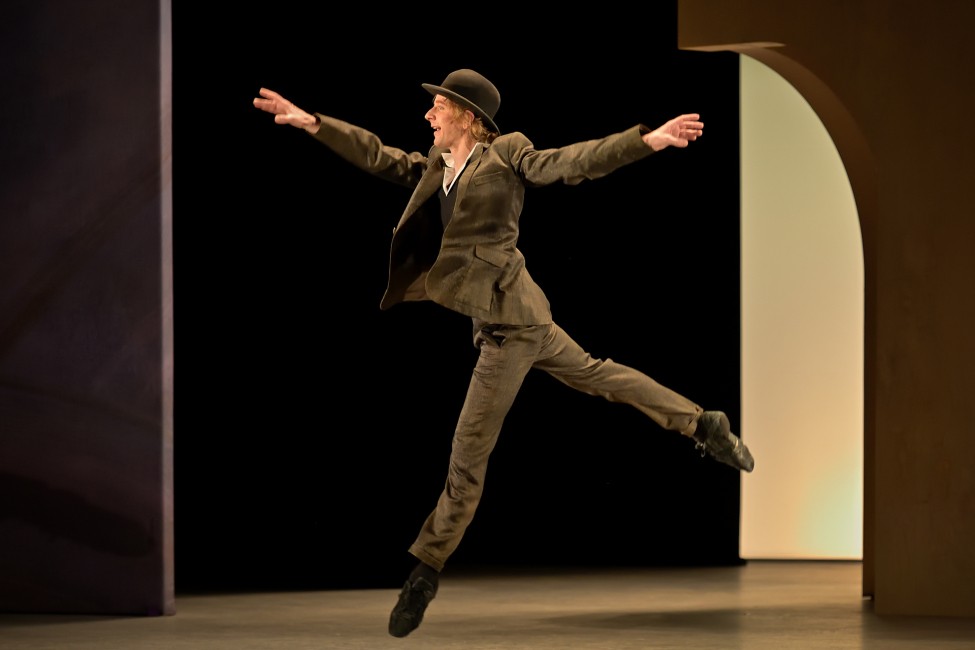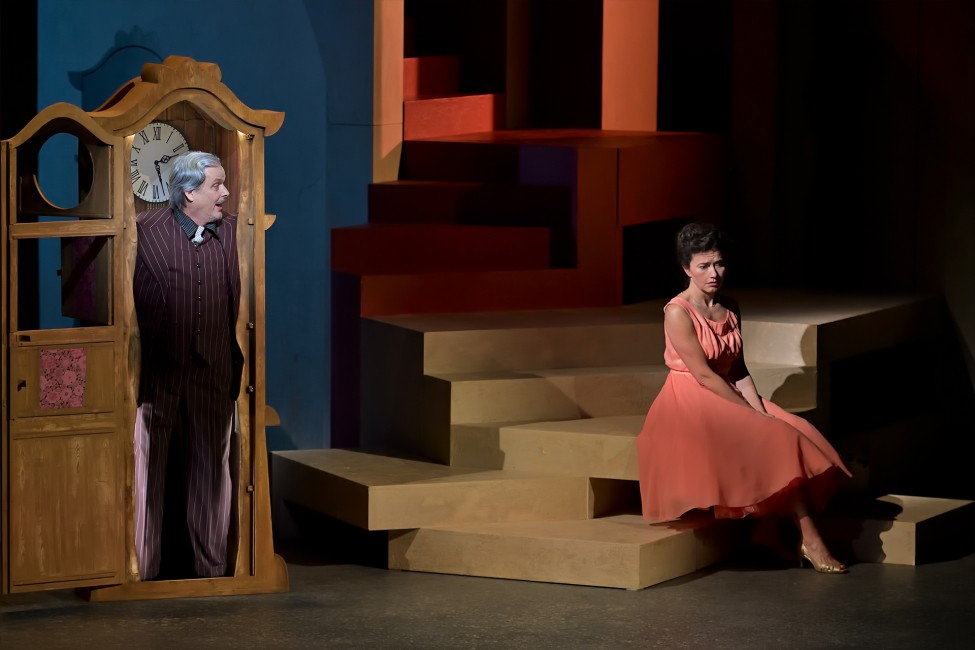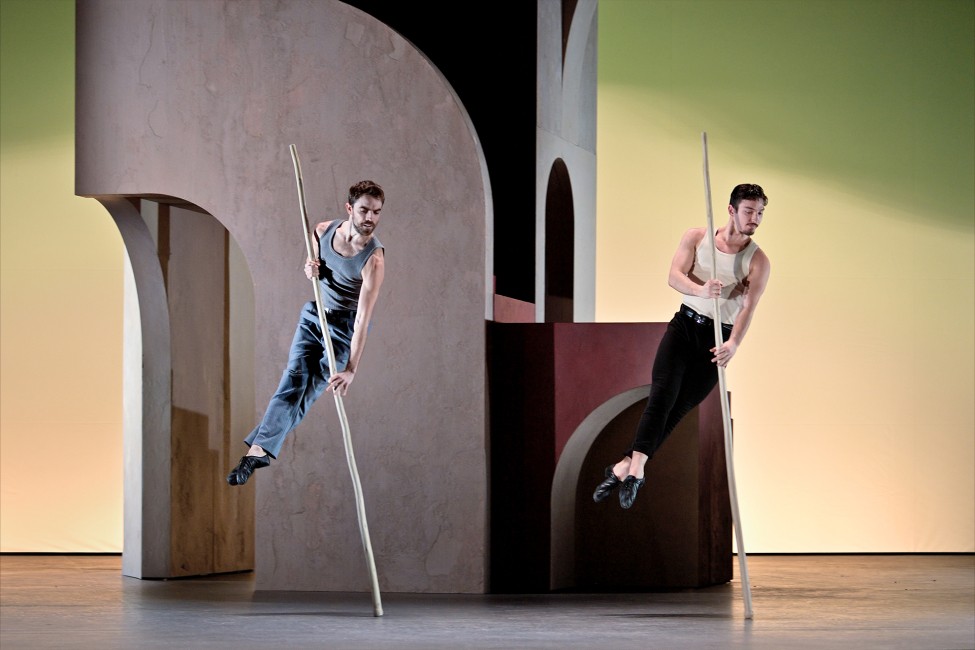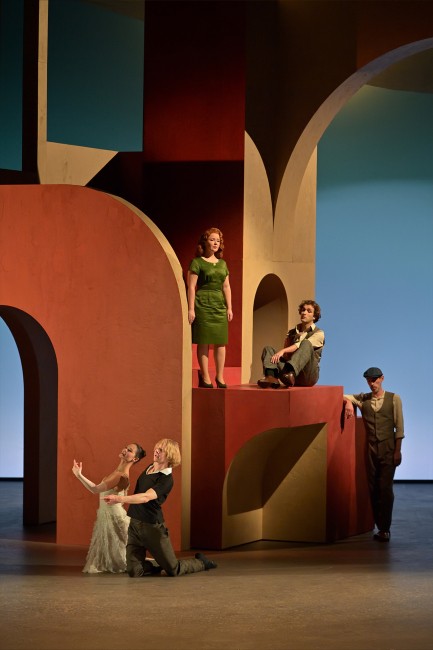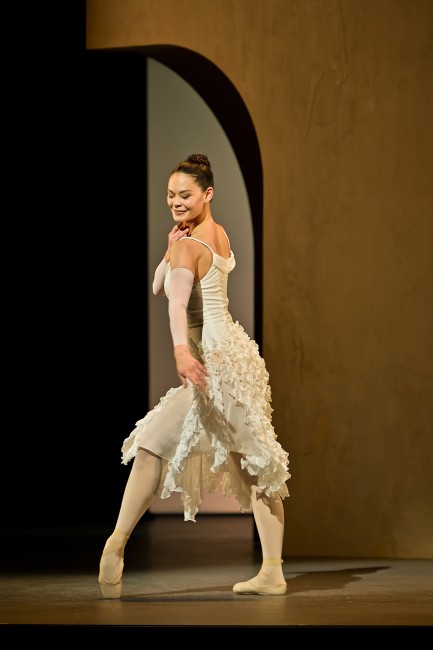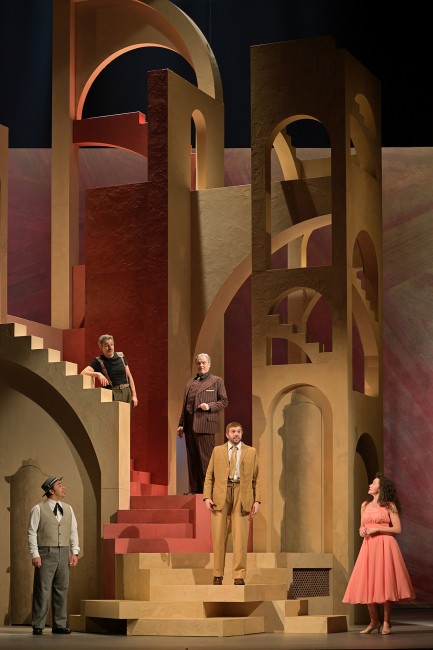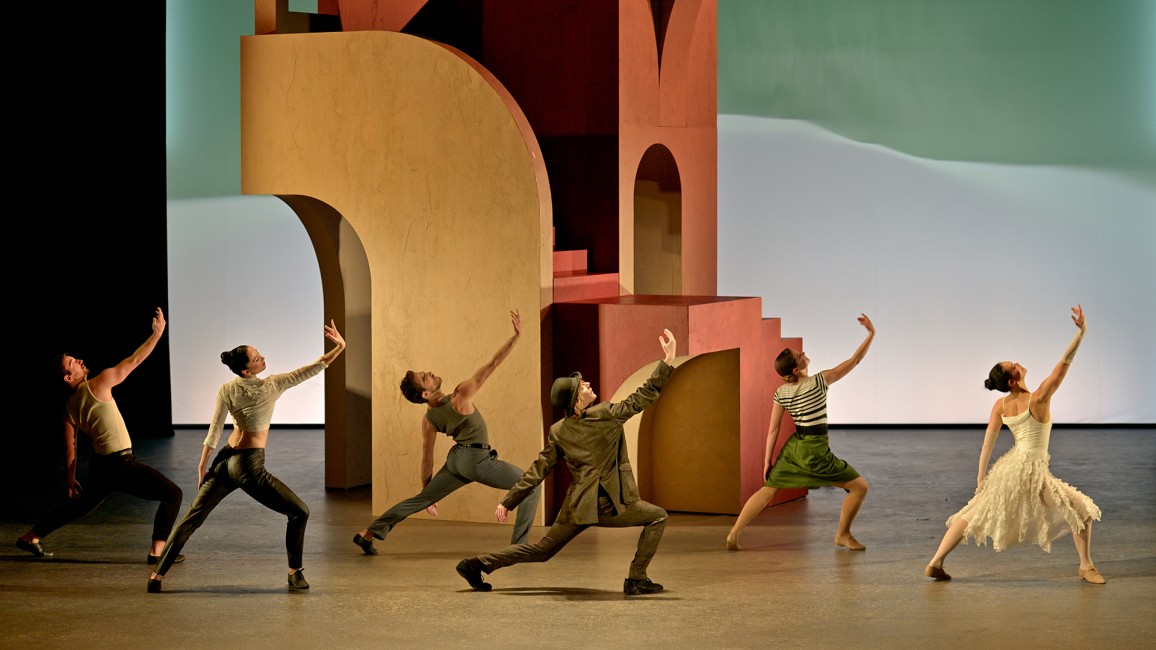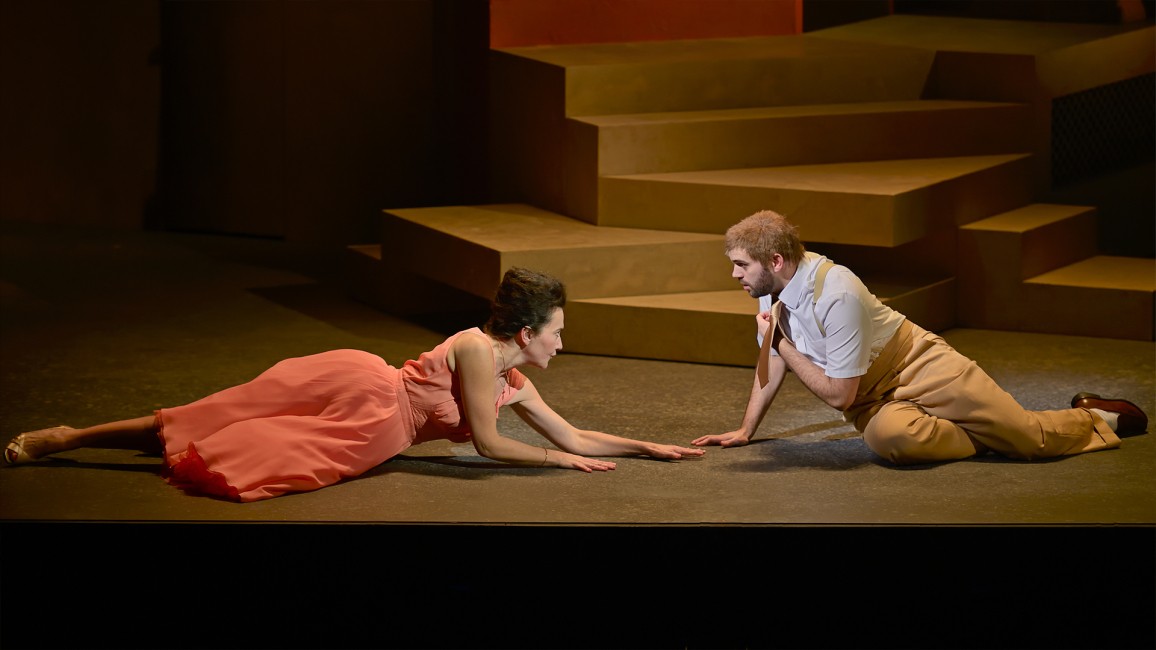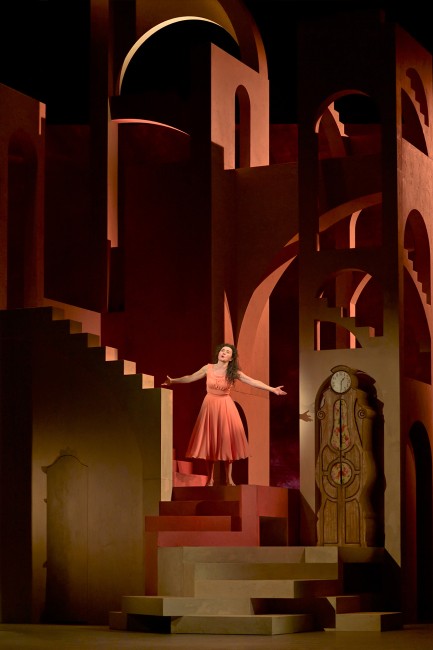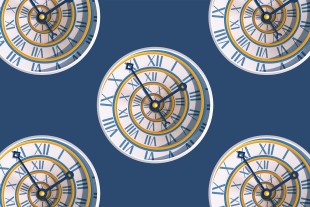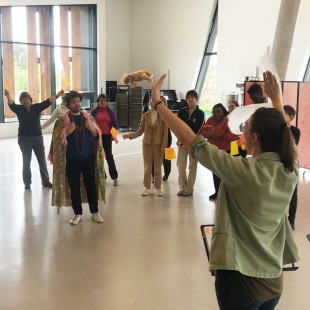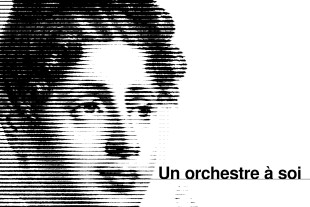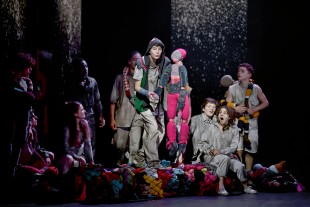Pulcinella
Category: Ballet with singing in one act, music based on Pergolesi.
Premiered: 1920, Opéra de Paris
Language: Italian
L'Heure espagnole
Category: Musical comedy in one act
Premiered: 1911, Opéra-Comique
Language: French
Running times: 2h10 (including 30 minutes interval)
New production: March 9th 2024, Opéra-Comique
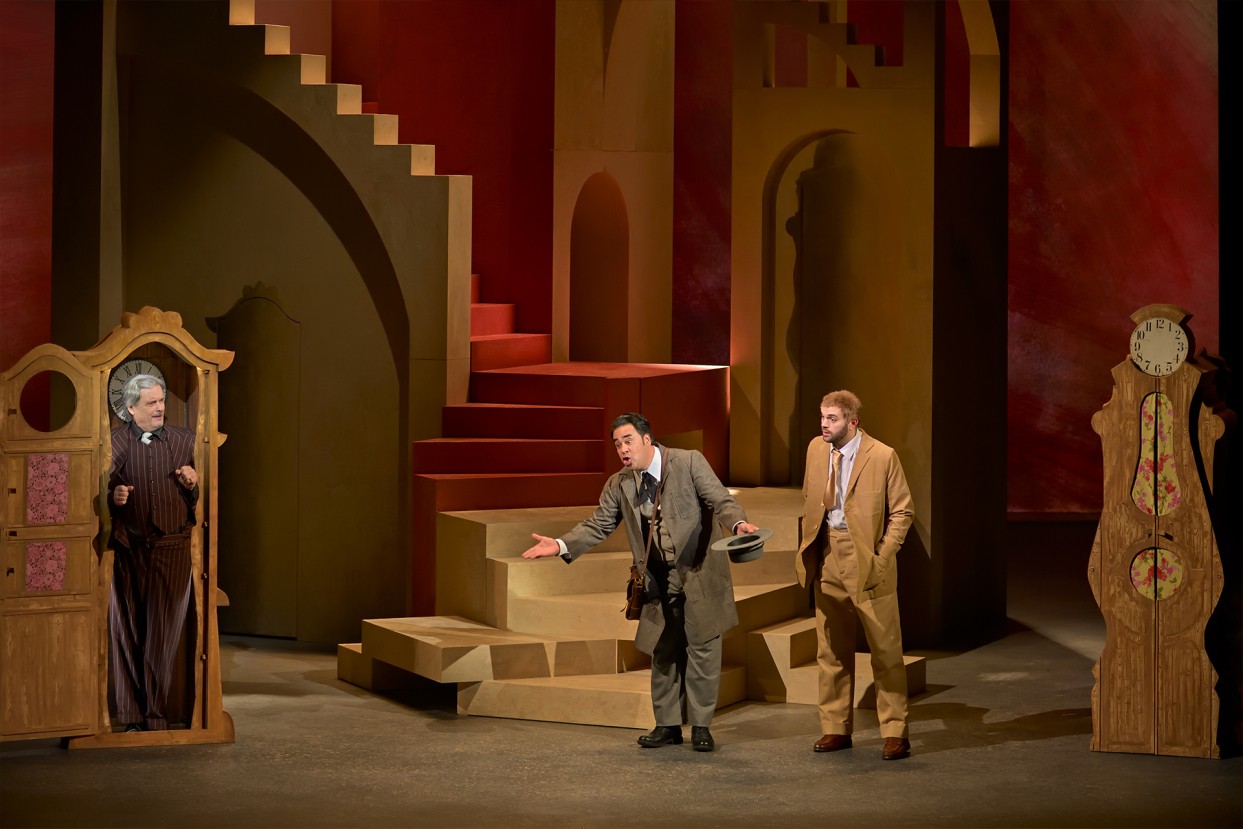
L'Heure espagnole, 2024 | De gauche à droite, Nicolas Cavallier (Don Iñigo Gomez), Philippe Talbot (Torquemada) et Benoît Rameau (Gonzalve) © Stefan Brion
Stage director: Guillaume Gallienne • Choreography: Clairemarie Osta • Set designer: Sylvie Olivé • Costume designer: Olivier Beriot • Lighting designer: John Torres • Dramaturgy: Marie Lambert-Le Bihan
Cast
Pulcinella
Number of Principals: 3 + 6 dancers
no chorus
L'Heure espagnole
5 Principals
Instrumentation
60 :
PULCINELLA 5-5-5-4-4 / 2.2.0.2. / 2. 1(pist).1.0
L’HEURE ESPAGNOLE 9-9-6-6-5 / 2.3.3.2 / 4. 2(pist.).3.1 / 1timp 1harp 4perc
Volume of the production
2 containers
Other info
Last performed : Opéra-Comique, 2024
Production : Opéra-Comique
Coproduction : Opéra National d’Estonie
Revival in Tallinn in 2025
In a few words
Once again, all the girls are in love with Polichinelle: he must therefore get rid of the jealous ones, while saving his own romance. It's the opposite for Concepción, the wife of the clockmaker of Toledo, who is afflicted with lovers as disappointing as her husband's.
Ravel, whom Stravinsky nicknamed "the Swiss clockmaker," created his first lyrical work at the Opéra-Comique, a musical comedy exalting the words and mechanics of the theater, just before embarking on his collaboration with the Ballets Russes. It was for them that after the war, Stravinsky agreed to dip his inspiration into the comic theater of Pergolesi: his ballet Pulcinella, created at the Opéra, inaugurated the neoclassical period of his production.
Louis Langrée, Guillaume Gallienne, and Clairemarie Osta combine the performing arts in the service of these two masterpieces inspired by the gallant 18th century, in a show that celebrates the freedom of genres and the fertility of the comic spirit.
Concept
Written roughly in the same decade, Pulcinella and L'Heure espagnole have fortuitous similarities. Both the ballet and the opera are centered around desire and depict its ambivalences by combining romantic feelings with jealousy, dissatisfaction, and duplicity. These are two light-hearted works, the first poetic, the second bawdy and amusing, with charming moments punctuating a boulevard-style plot, with a "Gaulish" mood according to Franc-Nohain himself.
The challenge was to bring them together on stage. Sylvie Olivé and I imagined a common set, with elements added or removed during the intermission. We transition from a southern, bare and sunny landscape for the ballet, to an urban and nocturnal perspective for the opera. I wanted to take the audience on a journey from ballet to opera, from gesture to speech, which in terms of styles can be translated as: from silent cinema to musical comedy. - Guillaume Gallienne, director
Press review
"The success and charm of this show come from the fact that neither the director Guillaume Gallienne, nor Sylvie Olivé (sets), nor Olivier Bériot (costumes), nor John Torres (lights) wanted to "reinterpret" or impose a contemporary vision on the two works. Instead, we are faced with a reenactment of the spirit of lightness and gentle delirium that animated Paris in the Roaring Twenties. A single set – a spiral staircase – in the center of the stage unites the two works, allowing Guillaume Gallienne to "transition from a southern, bare and sunny landscape for the ballet to an architectural part evoking clock mechanisms" and to lead us in the footsteps of the best of Feydeau, with irresistible scenes in Ravel that will trigger laughter from a delighted audience."
Bachtrack.com / 11 mars 2024 / Jean-Pierre Rousseau
"Pulcinella is a light, airy entertainment, primarily a pretext for Stravinsky to demonstrate his protean genius, where the profound musical originality always emerges behind the formal homage.
Pairing this work with Ravel's L'Heure espagnole is as clever as it is coherent. Besides the friendly and benevolent rivalry of the two musicians, and the contemporaneity of the two pieces (L'Heure was created nine years earlier), it is a shared second degree that unites this opera and this ballet.
Continuing his delicate inspiration from Pulcinella, Guillaume Gallienne avoids any excess, accompanying the work without ever overemphasizing it, dancing on the edge of its plot, and offering us a spectacle in chiaroscuro, where so many scenographers have summoned farce and fireworks."
Transfuge.fr / 11 mars 2024 / Oriane Jeancourt
Director of Artistic Coordination, Production and Development
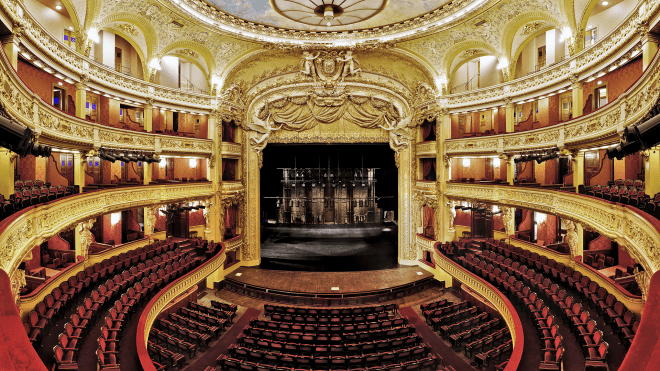
Productions catalogue
Welcome to the Opera-Comique dedicated web space to any project you may wish to develop with us. You will find rental productions.




